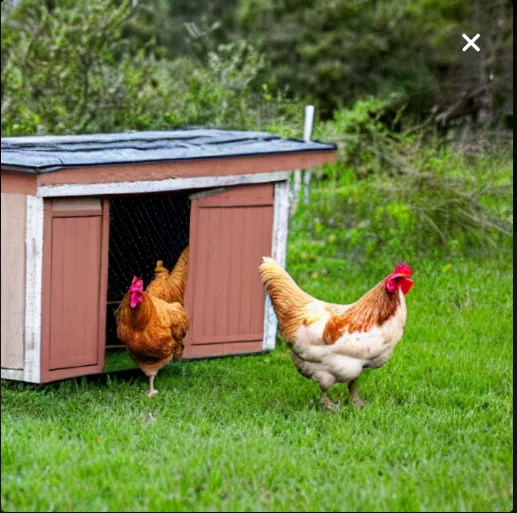Common Household Items that are Poisonous to Your Backyard Flock
Chickens are an important part of many people’s lives, providing us with fresh eggs and meat.
However, did you know that there are several common household items that can be poisonous to your backyard flock?
Let’s, we will discuss what is toxic to chickens and how to prevent poisoning in your backyard flock.
What is Toxic to Chickens
Toxicity in chickens can occur when they ingest or come into contact with substances that are harmful to their health.
Some common examples include:
- pesticides
- herbicides
- insecticides
- rodenticides
- fertilizers
- certain types of plants
These substances can cause a range of symptoms in chickens, from mild illness to severe poisoning that may result in death.
It’s essential to keep these potential hazards in mind when caring for your backyard flock.
Common Household Items that are Poisonous to Your Backyard Flock
1. Rat Poison – Rodent poisons are designed to kill rats and other small animals, but they can also harm your chickens if they ingest them. Signs of rat poisoning in chickens include bleeding, bruising, swelling, and difficulty breathing.
2. Snail Bait – Snail bait contains metaldehyde, which is highly toxic to birds. If your chickens eat snail bait, they may experience tremors, seizures, and respiratory failure.
3. Paint Thinner – Paint thinners contain solvents that can damage the nervous system, liver, and kidneys of chickens. Symptoms of paint thinner poisoning include depression, lack of appetite, and diarrhea.
4. Antifreeze – Antifreeze contains ethylene glycol, which is deadly to chickens. Even a small amount can cause kidney failure, seizures, and death.
See also Beyond Corn and Soybeans: Alternative Ingredients for Bulk Chicken Feed That Can Boost Your Flock's Health
5. Slug Baits – Slug baits often contain iron phosphate, which is less toxic than other forms of slug bait but can still harm chickens if ingested. Symptoms of slug bait poisoning include vomiting, diarrhea, and decreased appetite.
Signs of Poisoning in Chickens
It’s crucial to watch out for signs of poisoning in your chickens so that you can take action quickly.
Common signs of poisoning include:
- lethargy
- loss of appetite
- diarrhea
- vomiting
- difficulty breathing
- trembling
- convulsions
If you notice any of these symptoms in your chickens, seek veterinary assistance immediately.
Preventing Poisoning in Your Backyard Flock
The best way to prevent poisoning in your backyard flock is to keep potentially dangerous substances away from your chickens.
Here are some tips to help you do just that:
1. Store all chemicals safely out of reach of your chickens. Make sure they are kept in locked cabinets or sheds where your chickens cannot access them.
2. Use natural alternatives to chemical pest control whenever possible. For example, instead of using rat poison, try trapping rats or using natural repellents like peppermint oil.

3. Keep your chicken coop clean and well-maintained. Regularly remove droppings and old bedding to reduce the risk of disease and parasites.
4. Be cautious about allowing your chickens to free-range near gardens or lawns that have been treated with chemicals. Consider creating a separate area for your chickens to roam that has not been exposed to these substances.
By keeping your backyard flock safe from poisoning requires vigilance and awareness.
See also Everything You Need to Know About Egg-Laying Abilities of Rhode Island Reds
By being aware of common household items that can be poisonous to your chickens and taking steps to prevent exposure, you can help ensure the health and safety of your feathered friends.
